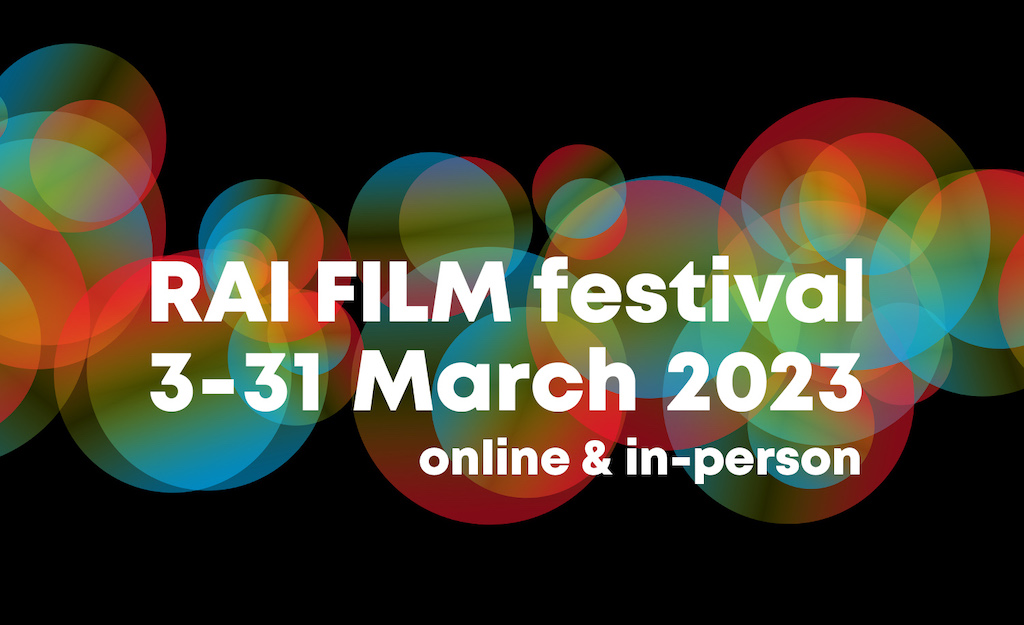The RAI Film Festival, which showcases groundbreaking documentary filmmaking from around the world, has announced an expansive remote and in-person programme for 2023.
The festival gathers storytellers from every corner of the world, whose films of humanity shine a light on the people, places and stories that are too often lost in the spotlight of global media.
The 18th edition takes place from 3rd to 31st March, offering a selection of over 80 films to a global streaming audience. In addition, a curated programme of film screenings, gala events, workshops and an expanded reality exhibition, will take place in Bristol from 22nd to 25th March.
During a live-stream programme launch event on 3rd February, festival co-directors Caterina Sartori and Stephen Hughes revealed many forthcoming festival highlights, including world-class competition films, curated programme strands, major prize award announcements and an exciting itinerary of in-person events at the Watershed and Arnolfini venues in Bristol, UK.
Caterina Sartori, festival co-director, said, “This year’s programme is expansive, and grapples with the central issues of our times. We look at ways in which filmmaking can and should contribute to the shaping of a more just future.”
Festival co-director, Stephen Hughes, added, “We have tried to push established conventions of documentary film to explore new, creative and multimodal approaches to form, narrative, collaboration and reflexivity in filmmaking.”
Forerunners in contemporary anthropological cinema compete for the festival’s most prestigious honours, the main competition RAI Film Prize and the Basil Wright Prize.
Unbreakable love stories, the atrocities of war, the impact of climate change on livelihoods and the challenges imposed on women in a patriarchal society are just some of the themes explored in the main competition films.
RAI Film Prize (main competition) selection:
A Thousand Fires (Saeed Taji Farouky, France)
Ernesto, gracias (Laura Ángel, Costa Rica)
How to Save a Dead Friend (Marusya Syroechkovskay, Sweden)
La Nave (Carlos Maria Romero, Colombia)
Little Palestine, Diary of a Siege (Abdallah Al-Khatib, Lebanon)
Once Upon a Village (Srishti Lakhera, India)
Rebel Objects (Carolina Arias Orti, Costa Rica)
Slow Return (Philip Cartell, United States)
Swirling in the Dreams (Hung En Su, Taiwan)
The Prison Promise (Joseph Dégramon Ndjom, Cameroon)
The Basil Wright Film Prize is given to a filmmaker using the medium as a means of furthering a concern for humanity. Other prize categories include the Werbner Award, given to a film made by an anthropologist based upon extensive fieldwork, and the Wiley Blackwell Student Film Prize, given to the most outstanding film made in the ethnographic tradition by a student enrolled in a recognised educational institution.
The Lifetime Achievement Award is presented to Alanis Obomsawin, a member of the Abenaki Nation and one of Canada’s most distinguished filmmakers. Obomsawin has directed more than 53 films in her legendary 54-year career.
The RAI President’s Award, which is given to a film of exceptional merit that addresses issues of great contemporary importance and concern in anthropology or archaeology, goes to What About China? by Trinh T Minh-ha.
Both the Lifetime Achievement Award and President’s Award will be presented to the esteemed filmmakers in person in Bristol.
The festival also includes a selection of ethnomusicological films that celebrate rich heritage of world music and sound. These include North Circular, a musical trip through Dublin’s north inner city, and Sing My Sister, a journey through the music and dance of women and girls in three regions of Mozambique.
Further highlights include a guest-curated programme from Christian Fischgold, Takumã Kuikuro and Graci Guarani, entitled Arandu – listen to the weather: Celebrating 35 years of Indigenous filmmaking from Brazil, a collection of eight films that highlight the artistic, political, cultural, preservation and environmental issues raised by indigenous film, from the point of view of the indigenous communities.
For the first time, the RAI Film Festival will include a section devoted to XR work, Expanded Reality Experience, featuring five multisensory and immersive works by emerging creators.
A shorts programme, including a stunning selection of animated short films on care, coming of age and living with trauma, feature in this year’s festival.
The programme is live on the festival website where festival passes can be purchased.











